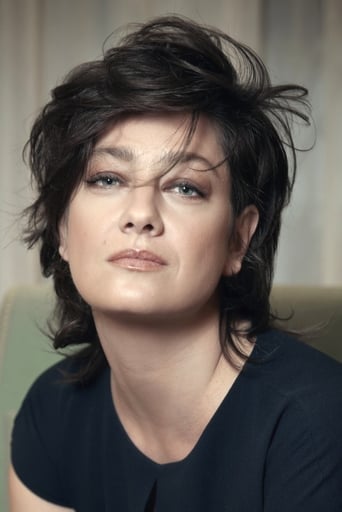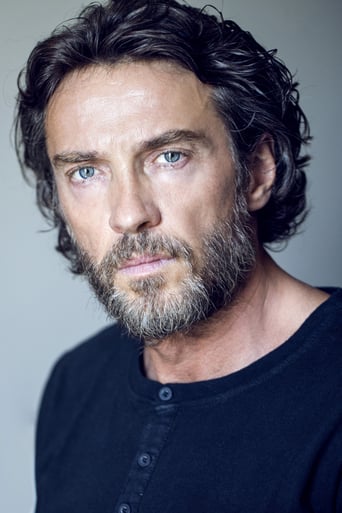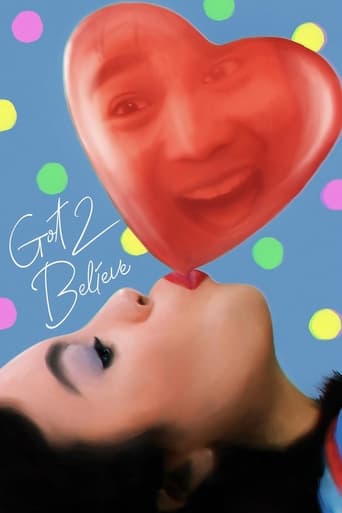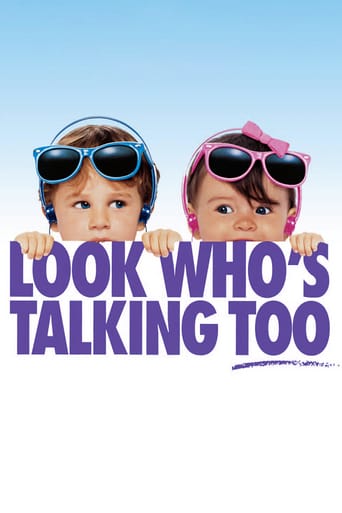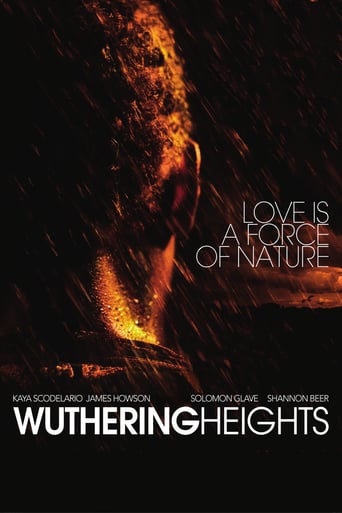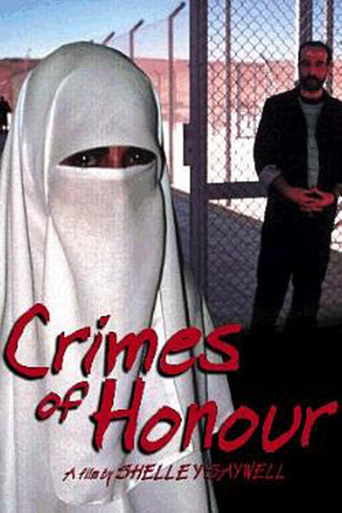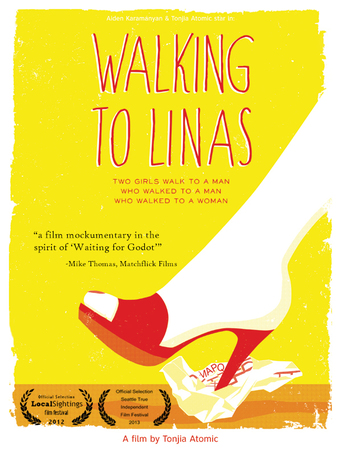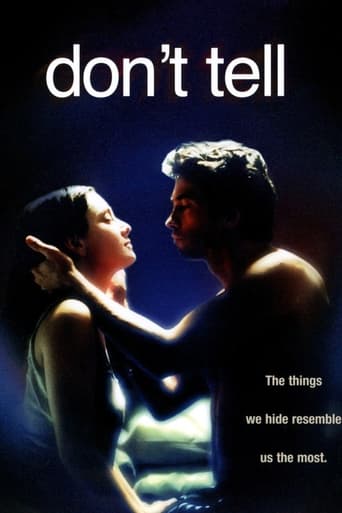
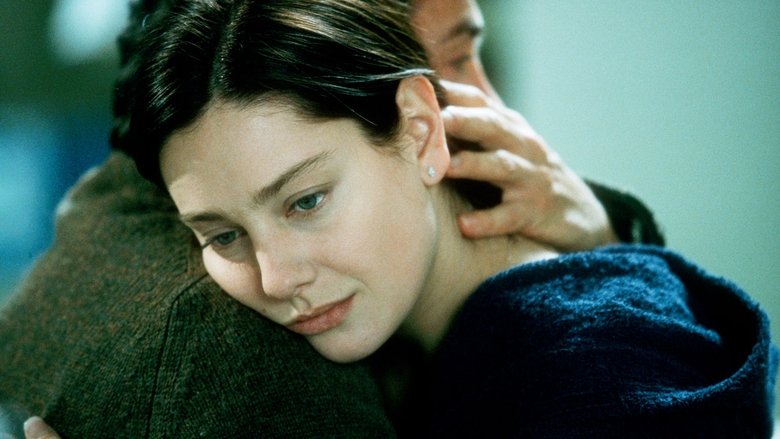
Don't Tell (2005)
Sabina has a regular life. She is satisfied with her job and her love for Franco. Lately nightmares start disturbing her, and almost in the same time she discovers to be pregnant. Step by step she remembers her childhood spent within a severe middle-class family. But a big secret is hidden within her heart. Sabina wants to contact again her brother, a University teacher in the US, to try to understand what is happened in their past. What is the secret? She is determined to bring clarity and serenity in her life. She finally manages to free herself from her "beast in the heart".
Watch Trailer
Cast
Similar titles



Reviews
Sick Product of a Sick System
A Disappointing Continuation
Good films always raise compelling questions, whether the format is fiction or documentary fact.
A movie that not only functions as a solid scarefest but a razor-sharp satire.
Sabina is a woman who seems to have it all: a job she loves, a nice boyfriend, and a great apartment. Yet, Sabina is carrying a heavy burden in her heart. It all comes to a head when she has to make a decision about the death of her parents, as we witness at the start of the film. All the bottled emotions are struggling to come out as she decides to spend Christmas with her brother Daniele in America. She wants to see her older sibling in order to make sense of her past and get closure with a horrible past.Sabina's boyfriend Franco, an actor, is selected to be in a soap opera. Being a theater actor, he is not completely satisfied with the idea, but being realistic, he has to compromise. Sabina, in parting, asks Franco not to see other women while she is away, knowing well the way things are in the world where Franco moves.Instead of being a joyous reunion, both siblings show a restraint in the way the visit develops. Daniele, who is a professor at an American university, plays the tour guide, pointing different aspects of the place he now calls home, but he never mentions anything about his own childhood. It takes a while for Daniele to open up to Sabina because she wants to get to the bottom of the secret that has damaged them both for life. Both, it turns out, are the victims of family sexual abuse by their father, an ugly situation perpetuated by the mother, who knowing about it, prefers to keep it hidden. When the truth comes out, we watch in horror scenes from both siblings childhood.Cristina Comencini, the author of the novel in which this film is based, adapted and directed with sure hand. She is the daughter of the distinguished Italian director Luigi Comencini. She has learned well as she sets her story with great precision, creating characters that one can relate to.The best thing in the film is the work of Giovanna Mezzogiorno. She brings life into Sabina, something that with another actress might not have been as easy. Ms. Mezzogiorno is simply splendid because she makes us care for this wounded woman who is searching for closure in understanding what was done to her at an early age. Equally excellent are Alessio Boni, who appears as Franco, the boyfriend, and Luigi LoCascio makes an impression as Daniele. Both these actors continue to surprise.
The vaguely titled DON'T TELL is a multi-layered story of repressions and the horrors of family secrets that threaten to explode at any moment -- a movie about pregnancy, both in a literal and figurative sense. With such a premise, this Italian movie should have been titled in English as "The Beast Within the Heart", which would have made more sense as it is what it is about. Sabina (Giovanna Mezzogiorno), a name that brings to mind "The Rape of the Sabines" and to the dark heroine of the same name of Anais Nin's erotic masterpiece "Spy in the House of Love", is the name of the woman at the center of the story. She's a voice-over actress doing some dubbing work for a unnamed movie in which a female jogger gets raped by a sleaze-ball. Little does she know, the screams of help and resistance that she is acting out will become all too real when her decision to have a child suddenly opens the floodgates to dogs that were better off sleeping in their black caves.It becomes clear that in order for Sabina to live a normal life -- if there is such a thing as "normal" -- she will have to face her inner pain instead of stifling it and further alienating herself from her friends and current boyfriend, a soap actor. A trip to the United States where she visits her brother Daniele (Luigi lo Cascio) further discloses not only the source of the pain, but its ramifications, and in a chilling scene, Daniele confesses not only his own trauma, but how he dealt with it, and how it left him a marked man. It's a very naked moment, and one that is in stark contrast to the torrent of emotion that Sabina has been experiencing, and one that leaves her hanging on a thread that threatens to snap at any moment.As an extra touch, and one that doesn't seem to occur in American movies, DON'T TELL gives some its supporting characters their own lives by telling parallel stories that may not be central to the action but at least sheds some info on them. It's a technique that rounds the movie out quite well in parts but becomes rococo on others. It's almost as if director and writer Cristina Comencini loved the characters from her novel of the same name so much she wanted to include all of them in one movie, and while that's okay in an ensemble, this is a drama that focuses on one woman's road to her past, and becomes cinematic filler. It's as if Krysztoff Kieslzowski would have crammed the events of his TROIS COULEURS trilogy into one movie: it would have been too much, even when all three stories are inherently powerful.On the upside of supporting characters, Sabina's gay best friend, Emilia (Stefaina Rocca), lives in isolation and is totally dependent on her due to her blindness. Sabina, however, decides to introduce her to Maria (Alessandra Finocchiaro), a friend and co-worker in the dubbing field, who's been separated from her husband and awakened to her own lesbianism. The scene where Emilia in her blindness reveals Maria's beauty is potent as it's simple and in a single shot, their attraction and seduction looks utterly beautiful. Their own relationship could spawn a movie in its own right, because it goes through its own shades of darkness that mirrors Sabina's, and is self contained. On the downside, Sabina's boyfriend, Franco (Alessio Boni), has a storyline that should have terminated when she leaves to the US, but we continue to see him initiating an affair with another woman. The director of the soap opera where he works also gets more screen time than necessary, and his "comedic" presence is a little jolting to a story that is melodramatic. However, such things are a small complaint, because DON'T TELL (LA BESTIA NEL CUORE) is very moving at times and has a visual climax that brings back the past into the present in a seamless montage of vivid images.
Cristina Comencini is the daughter of legendary Italian director Luigi Comencini, one of the makers of the Italian comedy from the Fifties to the Seventies. Cristina is an established director as well -she's also an appreciated writer. Her films are very different from the features of her father -either they're more dramatical or contain a less hilarious comedy."La bestia nel cuore" means "The beast in the heart" in English. The film is based on a book written by Cristina Comencini herself.Sabina (Giovanna Mezzogiorno), a dubbing actress, wants to see again her brother Daniele (Luigi Lo Cascio) -who works in America as a Universitiy teacher. They both share a terrible experience: when they were child they were abused by their father.This horrible experience is like a beast in the heart because it's impossible to recover from. They search for truth and try to elaborate it. In this film there are other characters with painful situations. Emilia (Stefania Rocca) is a blind woman friend of Sabina, she's lesbian; Maria (Angela Finocchiaro) is a 50 year old woman who faces the fact of having been left by her husband for a very very young girl. These people too have a beast in their heart.The film is dramatical, of course, but the atmosphere is not heavy at all -there are also moments in which we can laugh. So the film doesn't go in only one direction.There are a lot of reflection hints, it's not an easy film -because we all have bigger or smaller beasts in ourselves...-. But you don't go out of the cinema depressed and sad, not at all. There's a message of hope.The film his a high quality movie, with excellent actors. Giovanna Mezzogiorno won a price at the last Venice Film Festival: she deserved it because she acts very well. She's dramatical but in a believable way -she doesn't put too much emphasis and pathos in the role. A real actress.
Quite interestingly, this movie is based on a novel written by director Cristina Comencini herself. It is the story of Sabina (Mezzogiorno), a woman that suddenly discovers that her late father had sexually abused her. As a consequence of this epiphany, she flees to join her brother, now a professor of classical literature at the University of Virginia. During that fortnight she realizes she was not the only one in the family that had gone through such a nightmarish experience. Meanwhile, back in Rome, her partner is unfaithful to her and her two best girlfriends (one of whom is blind and the other has just been left by her husband for a girl of 20), fall in love with one another.Yes, this is a bunch of material to work with and to squeeze all of it in a single 100' movie is a bit risky. Actually not all is credible. For example, the parallel story of Franco, Sabina's boyfriend, is not really interesting. Sabina foretells he will go to bed with the first girl he meets while she is away and quite obviously this proves right: a young girl forces her way into Franco's apartment on New Year's Eve and when he tells her to go, she stays because she knows there won't be taxis available (what the hell should the guy have done?). All in all the character of Franco is a bit dumb.The Sapphic love story between the blind girl and Sabina's colleague could have been weird, but is interesting instead, most of all thanks to the quality of the two actresses (Rocca and, especially, astounding Finocchiaro). Beautiful Giovanna Mezzogiorno, not surprisingly, does a good job.The main issue of the movie, incest, is focused in the right way, not too melodramatic, but rather balanced between Sabina's nightmares and her brother Daniele's quiet hate and rational will to carry on. Unfortunately, the ending is not really interesting. Plus, Lo Cascio is correct, but nothing more.I liked the flashbacks from what seems to be an apartment in the 70s: a dark, dusty place, with seemingly no windows at all, a perfect place for perpetrating sinister family crimes and bearing them silently (the character of the mother). The Charlottesville segment is convincing, if a bit long. It is not a digression, but rather the most important section of the story. During Sabina's US stay we almost forget about her connections with the characters she left in Rome, and for half of the movie the stories run parallel. Later they suddenly reunite, which results in something of a clash.In a sequence, Comencini pays homage to some great Italian directors of the past (I caught a glimpse of pictures of at least Fellini, De Sica and Pasolini). Ironically, the sequence is set in a TV studio where a laughable series about a hospital is being shot. TV fiction is explicitly criticized, although later in the movie this attitude changes a bit (Franco, who has worked on the stage and for the cinema, accepts the part of an anesthetist with stupid dialog and even says they occasionally shoot scenes with virtuoso camera movements!).Comencini is not a Fellini or a Visconti, nor are her Italian colleagues of her generation. But it is not their fault: cinema and the movie market have changed a lot since then. But as long as correct, high standard movies as La bestia nel cuore are produced in Italy, there is nothing to complain about. Go on like this.
